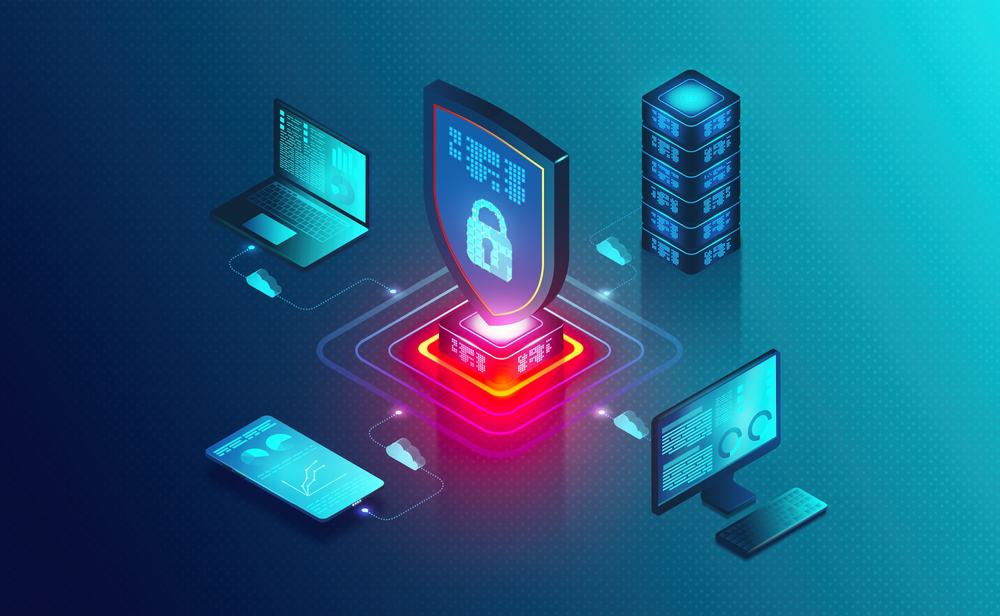
There are a few different areas of cybersecurity or related practices where businesses may find vulnerabilities they need to protect, and one of these is within the realm of endpoints. The use of endpoint devices among company employees has only increased since the onset of COVID-19, and ensuring that such devices are used safely and with the proper protections for both employees and the company is vital.
At Onward Technology, we're proud to offer a variety of managed IT and tech support services to clients throughout Utah, from many school-based clients to a wide range of others. What do we mean when we talk about endpoints and the need to secure them, and what are several ways we'll assist you with such endpoint protection for your business and its employees? Here's a primer.
When we talk about endpoints for the realm of IT, we're referring to any end-user device that's utilized for business, such as desktop computers, laptops, smartphones and tablets. These devices are used for email usage through a company's Exchange Server (or perhaps even Android for Work), file sharing and storage in network drives like OneDrive or Google Drive, and for all other forms of communication within the organization.
If your employees routinely utilize their own personal devices for work, then they are endpoints, too. Behind the scenes of these devices can be activities that hackers or malware creators can potentially take advantage of, so it's vital to have endpoint protection in place for your organization. With an endpoint management service through Onward Technology, you'll have all manner of assistance related to securing your company's IT endpoints.
Our next several sections will go over some of the top recommendations we typically make to clients when it comes to protecting both themselves and their employees via securing endpoints.
Employees need to be outfitted with a few basic tools to help protect their endpoints, especially if they're using their own devices for any part of the job. Such tools may include:
Beyond these actual programs or services, it's important to help employees understand just how important endpoint security is. They must be made aware that even minor slip-ups in the usage of their devices could potentially get the entire company into trouble -- and may even impact their own personal data if they're using their own machine for work.
Data minimization should be another major consideration for endpoint security, as employees may have access to some sensitive information on their devices that is no longer needed. This is a best practice throughout any industry that relies on IT infrastructure, and decreases the risk of data loss or exposure of such information.
Employees need to know what data is never deleted and why, as well as which files can safely be removed and when. This way, they'll consistently engage in the best practices regarding the deletion of sensitive information from their devices.
There are many parts of this realm that fall under the guise of compliance and regulatory standards, as well. For instance, anti-virus software must be updated regularly to ensure that it is still effective, and the act of updating may even involve repatching malware.
There are also issues of licensing and service agreements, and these must be addressed as well.
One of the endpoint types that tends to be among the largest struggles for businesses today is mobile devices. Even if you're supplying employees with the proper support tools, they may find themselves tempted to use their own phones or tablets for work purposes. While this is great for both convenience and morale, it also creates an extra layer of risk that must be addressed.
One way to do so is by using third-party location services like Google Location Services. This service will allow you to track your employees' mobile devices if they have been lost or stolen, which is a great way for protecting company data in the event of such an incident.
Otherwise, you may need to resort to enforcing a BYOD policy that prohibits employees from bringing their own devices into work for work purposes. While this may seem counter-productive, it does largely reduce the risk of data loss or exposure.
In today's technological landscape, endpoint security is a vital aspect of protecting an organization from potential threats. Even small mistakes from employees regarding their devices may have large implications for the company as a whole if they don't take care to ensure they are properly secured.
For more on how we'll assist you in this area, or to learn about any of our managed IT or other IT services in Utah, speak to the staff at Onward Technology today.